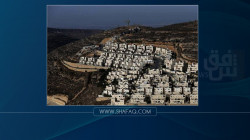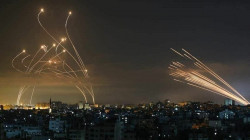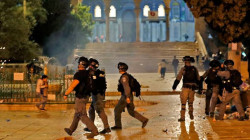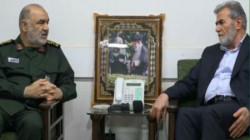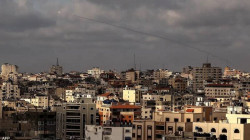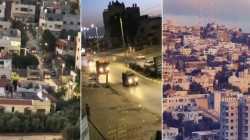The story behind the Israeli-Palestinian war over real estate dispute in "Sheikh Jarrah"
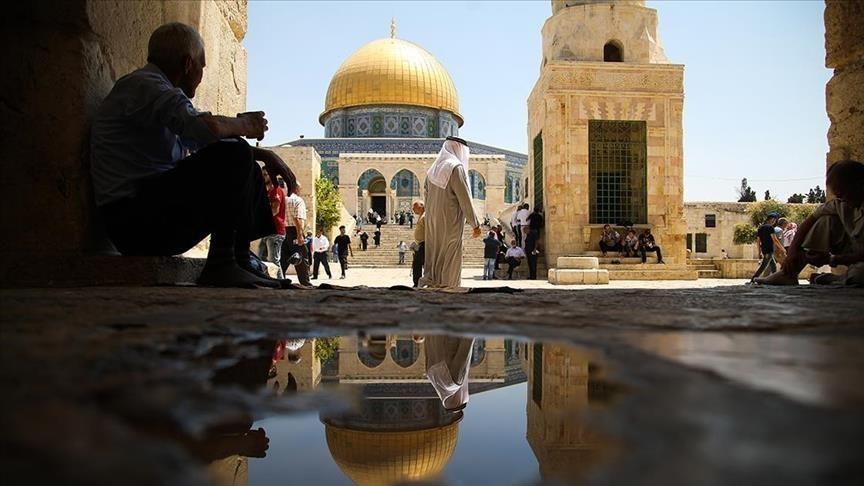
Shafaq News / In a video circulating on social media, a Palestinian woman tells an Israeli settler in a critical tone: "Jacob, you know this is not your home. You stole my house," the settler replies immediately, "If I do not steal it, someone else will."
This short dialogue summarizes much of the spark that flared up from the Sheikh Jarrah neighborhood in Jerusalem; the current military confrontation between Israel and Palestinian armed factions in the Gaza Strip, which is also witnessing confrontations in the West Bank cities, between Arab Palestinians inside the so-called "Green Line" under Israeli rule, and between Israeli settlers.
The issue is too thorny to understand without trying to scrutinize the background to the judicial dispute over the Sheikh Jarrah neighborhood, one of the east Jerusalem areas that Palestinians consider the capital of their hoped-for state, and which Israelis consider their de facto capital. A belief reinforced even symbolically by former U.S. President Donald Trump's recognition of Israeli sovereignty over all of Jerusalem.
Therefore, somewhere, Israelis act as exercising their sovereign rights on their own land, as the settler told the Palestinian lady, "If I do not steal your house, someone else will," while ignoring that there is an ongoing judicial dispute before the Israeli courts.
This is the core of the real problem. Some Palestinian families were forced to abandon the neighborhood during the 1948 war, while other families remained. As part of Jerusalem, the neighborhood remained under the administrative sovereignty of the Kingdom of Jordan, which built houses for Palestinian families displaced by the war. The residents have received leases from the Jordanian authorities that have been in their possession for decades to this day.
The situation remained the same until Israel occupied Jerusalem during the 1967 war. With the occupation of the city, the situation has changed radically. Since 1972, movements have been launched by Jewish associations and organizations to confirm that the land on which the Sheikh Jarrah neighborhood's houses are built belongs to Jewish owners, and therefore Palestinians must leave.
The Jewish narrative is based on the idea that Jewish associations bought the land more than 100 years ago, decades before Israel was established, and sold it over the years to families of Jewish settlers, despite the presence of 28 Palestinian families residing under the Jordanian leases.
On the other hand, the problem lies in the fact that Palestinians question the property documents presented by the Jews, saying that the registration of land in the name of the settlement association occurred through fraud and deception in collusion with the public property commissioner and the registrar of Israeli territory. Therefore, they demand that the Legal Counsel of the Israeli Government reveal how these properties were registered.
After the security situation in Jerusalem exploded through clashes between Palestinian demonstrators and Israeli security forces more than two weeks ago, Israel tried to contain the situation by postponing its decision for 30 days, hoping to calm the street first. About a week ago, the Supreme Court granted the Israeli attorney general's request to postpone its hearing, to consider whether or not to evacuate four Palestinian families from the neighborhood until it is considered whether or not to participate in the case.
Yet, it is noteworthy mentioning that the Central Court in Jerusalem had previously ordered the evacuation of Palestinian homes from the neighborhood. Israeli police were trying to force families out of homes, or help groups of settlers who had nothing directly to do with the judicial dispute, to enter houses and stay there, in a clear crackdown on Palestinian families, sparking clashes that have claimed many Palestinian victims.
It is also important to recall that Jordan's control was not only over Jerusalem but also on all areas of the West Bank, which Israel later occupied in 1967. The United Nations, and most of the world, continues to consider the Israeli presence in Jerusalem and the West Bank as an "occupation" under international law, which does not allow it to impose population or demographic changes on the areas it occupies. Therefore, it was not surprising that UN officials described Israel's attempts to forcibly evacuate Palestinian families as "war crimes" per international law.
The other irony of this conflict, which erupted in a war with Palestinian missiles and Israeli airstrikes, is that the principle of recovering land purchased more than 100 years ago on the basis that its ownership is Jewish is totally contrary to Israeli policy since 1948; the Israeli authorities do not recognize any Palestinian property confiscated in the areas of Israel's creation 70 years ago. As a result, the Palestinians are now fighting for what remains in the West Bank, where Jewish settlements have swallowed up vast tracts of their land.
Therefore, while Israel legalizes the right of settlers to land - if they originally own it - that dates back decades before the Jewish-Palestinian conflict, it deprives Palestinians of the claim of property from Israeli-controlled homes and lands where thousands of Jewish families now live.
It is also important to note that the Sheikh Jarrah neighborhood, which, according to historians and ancient Ottoman documents, was a basically Islamic endowment, and was inhabited over hundreds of years, allowing Israel, if it put its hand on it, to surround the Jewish presence through Jewish settlements and houses, around the historic area of the Dome of the Rock Mosque, one of the Muslims' most important holy sites, as well as the holy Western Wall of the Jews.
It is estimated that the 200,000 Jewish settlers in Jerusalem are already living on property and houses owned by Palestinians who have been forced to abandon them after its occupation in 1967 following a series of thorny Israeli laws and measures - particularly through the so-called Israeli Land Authority - to evacuate them over the past 50 years. The Jewish population in Jerusalem has been limited to hundreds for years, while the number of Palestinians still residing in Jerusalem is about 300,000.
According to international law, the presence of Israeli settlements in Jerusalem is illegal. The issue of Jerusalem is included in the Israeli-Palestinian peace negotiations, which began more than 30 years ago, as part of the so-called "final status issues", and the resolution of the Jewish control over it preempts the outcome of future negotiations.
Against this backdrop of the scene of events around Jerusalem, it is clear that the bloody tension we are witnessing is not a "real estate dispute". Nevertheless, this situation may continue unless a just and comprehensive settlement is reached.
